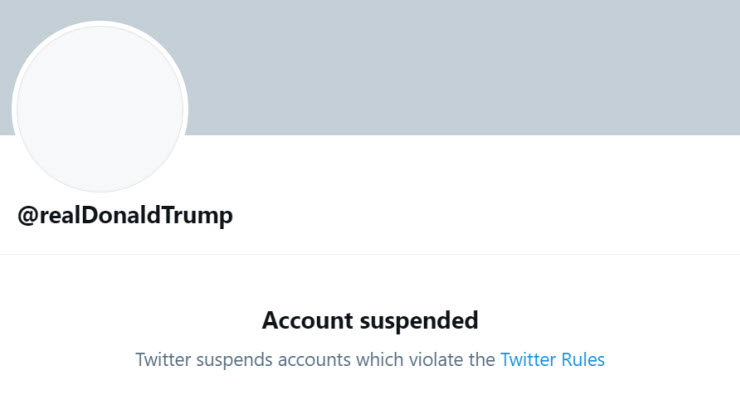
Any remaining doubt about the social power of the companies that control social media in the West should have been put to bed by the digital defenestration of Donald Trump.
Given that Facebook and Twitter have immense, unprecedented power to manipulate and control what we read and hear and who gets to write or say it, and they have finally chosen to exercise that power in a brutally unsubtle way, is that OK? What can, or should, the law do about it?
Free speech is an abstract notion, in that it has never existed anywhere. All societies constrain its exercise for the same reason that they constrain free choice. That leaves no basis for arguing it is wrong in principle for social media companies to exercise some control over the content on their platforms.
Nor does it make sense to say social media should be free of government control over its content. To some extent governments always regulate what media can publish or broadcast — even in the most liberal societies.
Where we find ourselves was inevitable. For the longest time, the social media giants avoided this moment because it rubs against the principles on which they were founded.
It was inevitable, however, because with power comes the observability of social licence. All businesses operate with a social licence — that is the implicit mandate to exist on the assumed basis that that existence serves the social good.
The more powerful a business becomes, the more consequential is its licence, and the more likely that that licence may be revoked or subjected to limitations.
The story of capitalism is largely that sequence of events.
So Facebook and Twitter were always going to face a reckoning with their own power, and Trump forced it upon them by the sheer scale of his recklessness. They made the right and only choice to take him down as the alternative had become incompatible with their social licence to continue to exist.
However, now they have a problem — also inevitable. Critical to their operating artifice — that they are mere passive providers of a public square on which others make and share the content — is the claim that they have no legal responsibility for what happens on their platforms. They are not, in short, publishers.
That is now a very hard argument to make, because they have just exercised the fundamental power of the publisher: to choose what gets published on their watch. It does not make sense for them to now continue to assert that they can’t be held accountable for content.
The law is a long way behind on this. The courts have been struggling along, trying to retrofit old case law from pre-internet times to the digital world, with predictably arbitrary results. There is no analogy between a noticeboard in a golf club and Facebook, yet we’re still having that argument.
The time is fast approaching for a new perspective on the legal responsibility of social media platforms for their content, because it is in a genuine sense theirs. They are increasingly controlling it — as they must for social reasons — and they can’t continue to escape the legal consequences.
To waste time arguing about whether they should or should not have deplatformed Trump is to miss the point because it was always going to happen (if not to him, then to the next, even more dangerous, demagogue). We should be talking about what it means.








It is well past time we put to bed the notion of free speech. All societies set rules and boundaries around speech. The scope of the rules depends solely on the structure of the government. That democratic nations enjoy more social licence regrading speech doesn’t mean it doesn’t exist. Social media companies are long overdue and have only lasted this long because of their money and power. Bring on more governance of SM I say. I’m well over their “ it’s got nothing to do with us” bullsh!t as their platforms disseminate hate, lies and ignorance.
Think this conflates continued breaches of ‘terms of service’* with the ‘freedom of speech’ catch all, backgrounded by ad hoc regulation that is careful not to impinge on legacy media (in case they also have to follow).
The issue is how public figures can push the boat out in public media or platforms when normal people cannot make any transgression or worse be sued, assuming they can access the same?
Trump like too many others to mention in power, who demand constraints on digital platforms for their benefit while continuing to use the same to demonise or denigrate others. *Trump should have been kicked off years ago…..
The big platforms are so wealthy from retailing their product – users – that they feel omnipotent.
Enjoy the hubris moment – Nemesis has you on her dance card.
A publisher takes content and uses technology to reach an audience. The technology is irrelevant. The source of the content is irrelevant. The restraints that apply to publishers should apply to all digital providers. Including this one. The law should be changed to make, not only Facebook and Twitter responsible for their content but also smaller enterprises many of whom make little or no attempt to moderate the content provided by…..people like me. The suggestion that this is unfair because it is expensive and difficult to moderate a large flow of content merely highlights a problem area for the businesses concerned. The existence of places like this solicit content. Presumably, since they do it, this boosts revenue so where is the excuse?